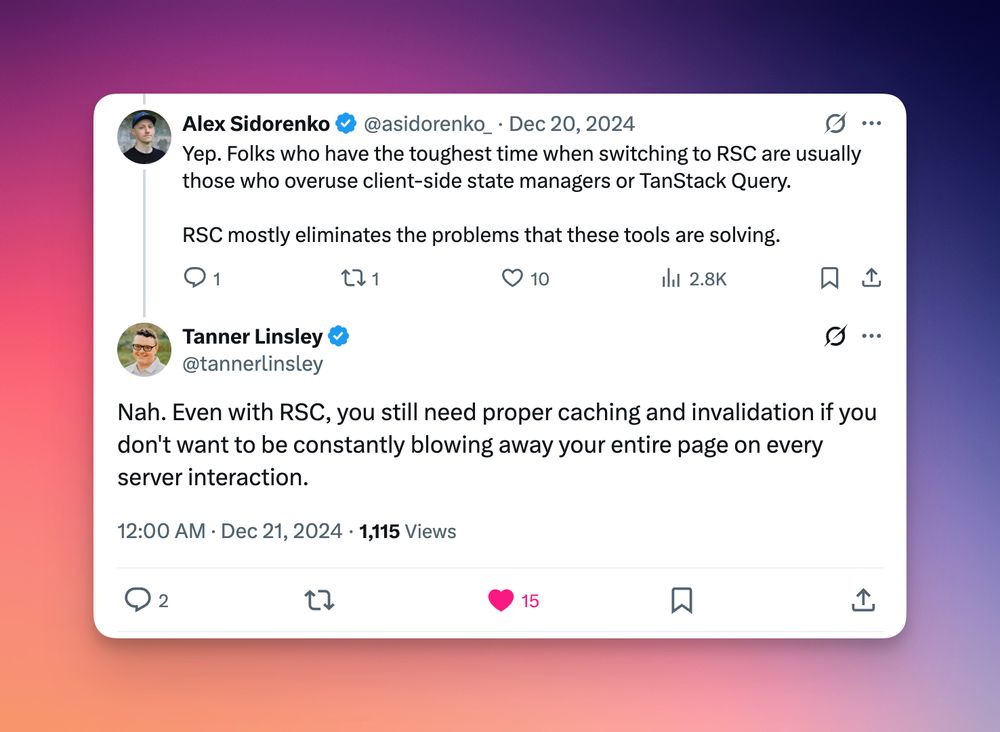router.refresh is for non-mutation cases (refresh data on client event, etc...)
router.refresh is for non-mutation cases (refresh data on client event, etc...)
Easier to broaden the scope, harder to hyper-specialize
Easier to broaden the scope, harder to hyper-specialize
So the pushback (at least in part) comes from the existing structures of work we adapted during SPA era
So the pushback (at least in part) comes from the existing structures of work we adapted during SPA era
1. Static output with no node server
2. Instant route navigation
1. Static output with no node server
2. Instant route navigation
It would be great if RSC covered this use case
bsky.app/profile/alex...
Anyway, it would be awesome if you could clarify how RSC compares/integrates with existing client-side data fetching libs in your write.
It would be great if RSC covered this use case
bsky.app/profile/alex...

But yea, even something like "revalidateSegmentPage" could help, as right now it's only revalidatePath/revalidateTag, which both re-render the entire RSC tree from the root, including all layouts
But yea, even something like "revalidateSegmentPage" could help, as right now it's only revalidatePath/revalidateTag, which both re-render the entire RSC tree from the root, including all layouts
Anyway, it would be awesome if you could clarify how RSC compares/integrates with existing client-side data fetching libs in your write.
Anyway, it would be awesome if you could clarify how RSC compares/integrates with existing client-side data fetching libs in your write.
On which Tanner pointed out (rightly so, imo) that you still need selective revalidation from the client.

On which Tanner pointed out (rightly so, imo) that you still need selective revalidation from the client.
P.S. "You’re right that such leaves could in principle be HTML-only"
Oh, this is very interesting 👀
Is this optimization planned?
P.S. "You’re right that such leaves could in principle be HTML-only"
Oh, this is very interesting 👀
Is this optimization planned?

